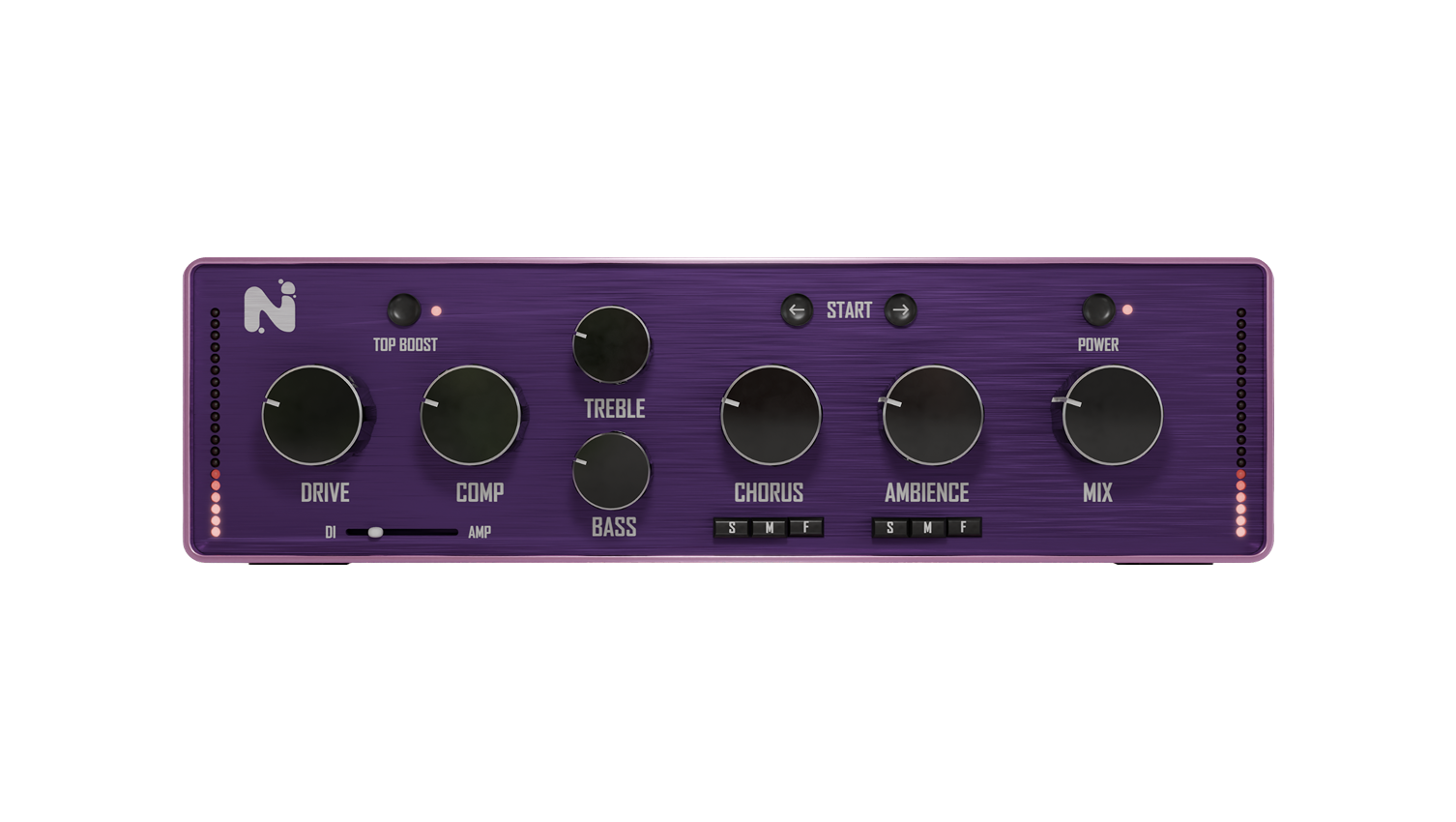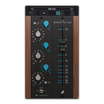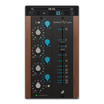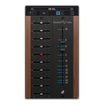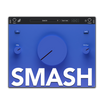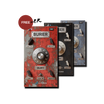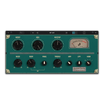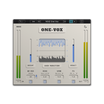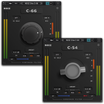
Ryan Sanchez, owner of Echo Lane Productions, is a renowned film, video game, and TV Score Mixer with over 10 years of experience.
Most recently, Ryan mixed the scores for Season 2 of Amazon’s The Lord of the Rings: The Rings of Power and Disney+’s Percy Jackson and the Olympians.
Over the course of his career, Ryan has worked on more than 400 episodes of TV, including hit shows such as The Walking Dead, Outlander, and Foundation. He collaborates frequently with a variety of composers including Emmy and BAFTA winner, Bear McCreary.
Ryan is known for bringing scores to life while maintaining the integrity of the composer's sonic vision. Ryan also mixed the score for Director Christopher Landon’s horror comedies Freaky and We Have a Ghost; served as a score assistant on Dan Trachtenberg’s 10 Cloverfield Lane; and did additional recording and mixing work on Sony Playstation’s God of War (2018). Ryan is a proud graduate of USC’s prestigious Thornton School of Music.
We at KIT Plugins had the pleasure of briefly pulling Ryan aside from his busy schedule to ask him a few questions.
Q: Tell us a little about yourself, how you got started to where you are now; including notable projects you’ve worked on.
Ryan: I attended USC’s Thornton School of Music, where I first discovered my passion for mixing. I was constantly looking for artists to work with and had done a couple internships in LA, including Conway Recording Studios. During my last semester, I was introduced to a score mixer looking for an assistant, so I quickly went from records to scoring without ever knowing where it would lead. Since then, I’ve been fortunate enough to have mixed many scores such as Percy Jackson and the Olympians, Foundation, and The Walking Dead, to name a few.
Q: Can you walk us through your experience in mixing movie/tv soundtracks?
Ryan: It’s a process that requires staying conscious of multiple mediums. On one hand, the composer hires me to enhance the vision of their score. In that sense, it’s a music mixing job just like it would be in record production. Because the music is for visual media, I have to also consider how the score will interact with dialogue and sound effects. For me, it’s the best of both worlds! I love film, TV, and video games just as much as I love music.
Q: How did you first hear about KIT Plugins?
Ryan: I’m a total plugin fanatic! I’m always looking to improve my mix quality and workflow, so I tend to search the plugin market more than I care to admit. I came across the BB N105 as soon as it came out and was blown away with its sonic character. I knew that KIT would be a company to keep my eye on going forward.
Q: Which of our plugins are your favorite?
Ryan: I really think that every KIT plugin sounds fantastic; my personal favorites are the BB N105, BB N73, and SMASH. I find myself reaching for them on almost every single one of my mixes.
Q: Which specific plugins from our company have you used in your previous projects, and what benefits did they provide?
Ryan: I can’t remember the last time I haven’t used the BB N105 or N73 on a project. They both add so much character and mojo to my mixes. They’re incredibly useful for adding depth and punch to soloists, staccato strings, and synth arps.
Q: What projects have you worked on using our plugins?
Ryan: Most recently, I used KIT plugins on Amazon's The Lord of the Rings: The Rings of Power Season 2 as well as Disney +'s Percy Jackson and the Olympians.
Q: How do you stay updated on new plugin technologies and techniques relevant to movie/tv soundtrack mixing?
Ryan: I’ve always been someone that strives to push the envelope in score mixing. I’m obsessed with trying out new plugins to find the best tools for any given scenario. Admittedly, I tweak the signal chain of my orchestra bus to fit the tone of whatever project I’m on. I’m constantly hungry for more knowledge and experience. I don’t think you can ever be too good of a mixer to not learn something new.
Q: What software do you primarily use for mixing, and how familiar are you with plugins?
Ryan: I’ve been a Pro Tools user for my entire career. I don’t think I could ever work in another DAW; or at least I hope I never have to. Knowing my DAW and plugins comprehensively allows me to stay efficient in an industry where deadlines are very tight. I’m responsible for mixing hours of music per project where the quality can never be sacrificed, so having high quality plugins is essential to my workflow.
Q: How do you incorporate plugins into your workflow when mixing movie/tv soundtracks?
Ryan: I’m 100% in the box, so plugins are the only tools I use for processing audio. It’s a really exciting time to be a mixing engineer because the boundaries of mixing are constantly being pushed by innovative plugin companies. Tools that offer quick results are really the only way that I can deliver high quality mixes within the timeframes I’m given.
Q: Can you discuss a particularly challenging soundtrack mixing project you've worked on and how you addressed it?
Ryan: To be honest, every single project I work on has its own unique challenges. The most substantial step is creating a sonic palette that will complement the integrity of the score. The better I know my tools, the more confidence I have in addressing problems in the mix. Being able to adapt to any situation and working efficiently under pressure is part of the gig.
Q: Can you describe a situation where you had to troubleshoot or find creative solutions while using plugins during a mix?
Ryan: There’s always obstacles and things to troubleshoot in a mix. It may stem from a recording that simply doesn’t sit well contextually or a need to create necessary space for a composition to breathe. It’s my job to experiment and push the boundaries of a mix to provide my clients with the best possible service. Sometimes, it’s just a matter of trying things that don’t work in order to find what will.
Q: What do you consider the most important aspects of achieving a balanced and immersive mix for a movie/tv soundtrack?
Ryan: As a score mixer, it’s very important to stay conscious of how your surround mixes will interact with the dialogue and sound effects. I’m very careful about how I pan certain elements based on the scene, which ensures the music provides a needed emotion without ever being distracting to the audience. It’s critical to recognize moments where you’re more restrained versus where the score really needs to shine.
Q: How do you approach collaborating with directors or producers to meet their vision for the sound of a film?
Ryan: I don’t usually interact with the directors or producers. That’s a role meant for my clients as the composer. However, I do have very detailed discussions with the composers in order to understand their intent with the score. Thoroughly respecting and listening to their demos against the picture is crucial. I take that information and decide how to build my template while also brainstorming with recording engineers about how we should capture the live performances of the musicians we plan to record. The more I work with repeat clients, the more I understand their likes and dislikes. So, by then, I’m also using my natural instincts to take the mixes where I know the composer wants them to go.
Q: In your opinion, what role do plugins play in enhancing the quality and impact of a movie/tv's soundtrack?
Ryan: They play a significant role in how the emotion of the music will be perceived. I’m very meticulous in which plugins I use in order to create a sonic atmosphere for the score I’m working on. How I decide to process a score is all dependent on the project and style of music. While there are similarities across my projects, there really isn’t a one size fits all approach. I customize my template to enhance a composer’s score to its fullest potential on each and every project.
Q: Can you discuss your experience with using our company's plugins specifically, and how they compare to others you've used?
Ryan: KIT plugins have a really unique character to them. The way they saturate, add depth, and tighten up a source are really impressive. Great sound quality, ease of use, an inspiring UI, and CPU friendliness are all things I look for in a plugin and KIT does a great job of checking all those boxes. It’s not everyday that I come across companies with all those qualities, so hats off to you guys for all your incredible work!
Q: Have you ever had to work within tight deadlines for soundtrack mixing projects, and how did you manage your time effectively?
Ryan: As I’ve alluded to earlier, tight deadlines are always a factor in score mixing. The way I handle that is by being as prepared as I can in advance and making sure I’m in sync with the composer’s sonic vision. Most of the time, I oversee the logistics across the entire engineering process and have a team of highly skilled assistants to handle prep, editing, and sometimes even recording so I can stay focused on the mix. I’m usually working with live orchestra and soloists, so I work on programmed stems that will remain in the mix before we’re even done recording the score. If your template is well thought out and precise, you can save days of work because your settings will stick fairly well across the majority of the cues. Of course, there’s still plenty of tweaking needed, but having the right system in place and the appropriate tools will ensure your success.
Q: What techniques do you use to ensure compatibility and consistency of audio across different playback systems?
Ryan: It’s really about knowing your gear and how it translates. I’ve gotten to know my speakers and headphones so well over the years that I don’t really need to check my mixes in the car, on laptop speakers, or on the phone anymore. It’s always helpful to check my mixes on different devices if I have the time, but it’s usually not something I do during the mixing process. I will say though, I always jump at the opportunity to watch a TV show, film or video game I’ve worked on once it’s released. Hearing the final product is immensely informative in how I will make adjustments in the future. When I’ve worked on a film, I make sure that I hit the theater to check it out once it’s released. If I’ve worked on a TV show or video game, I make sure I check them out on my little home theater setup too.
Q: How do you handle feedback or revisions from the composer during the mixing process?
Ryan: Mix notes from the composer should always be expected. You have to remember that it’s not your music and that the client has spent countless hours painting a picture in their head of what the final product should sound like. However, my goal as a mixer is to mitigate the number of notes by being as prepared as possible early on in the process. If you study the demo mixes closely and familiarize yourself with the picture, your mixes will usually be in the ballpark on V1. I want my first round of mixes to nail the emotion the composer intended and it’s usually a good sign that I’ve succeeded when I receive smaller detailed notes and less broad/general notes. If I’m unsure what the client wants or am working with someone for the first time, I always send a mix that resembles the heart and soul of the score to get early feedback before I apply my approach to the rest of the cues.
Q: Can you provide examples of how you've utilized plugins creatively to achieve unique or innovative effects in movie/tv soundtracks?
Ryan: Reverb, delay, and modulation plugins play a really big role in this. They provide a mood and atmosphere that can immediately pull you into the genre of a score . If I’m working on a show like Outlander, I may have a more organic approach to the mix where instruments are placed in natural environments and processed for a raw feel. On the other hand, a sci-fi score like Foundation or Halo allows more room for experimentation and creative effects to make the listener feel like they’ve entered a different universe. I’m big on automating levels and effects for moments where I know it can make the biggest impact. This provides a more cinematic experience to the listener, where the mix is always evolving. Dynamic range plays a huge role in scoring, so I always like to use that to my advantage as well. The loudest part of a cue will generally be the most processed, while the quieter sections might have less aggressive settings on them. All of my decisions in a mix are completely influenced by the style of music. I get to explore new genres all the time and add to my own musical instincts through new experiences!
Q: What are your thoughts on Atmos mixing and what challenges does it bring? Where do you see the future of plugins moving toward to support Atmos?
Ryan: Atmos is a really fun and inspiring format! It hasn’t been very hard to adapt to since most of my projects are always in various types of surround formats; it’s really just more speakers. I see Atmos sticking around for the long haul, so I expect many more companies to begin rolling out immersive versions of their plugins. I’m really excited to see where it all goes!


